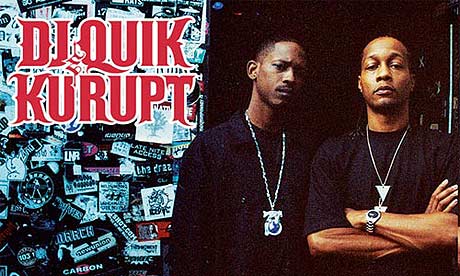
Does hip-hop need saving? It's a question that is asked each year. The latest attempt to throw down the gauntlet came courtesy of Jay-Z, who decried the "softening" of the genre in Death of Auto-Tune. The single fell flat for a number of reasons, partly because it was the sound of a man buying too fully into his position as an elder statesman of the genre, forgetting how he built his own career on production gimmicks. Not only did Death of Auto-Tune come off like a grandfather shaking his walking stick at kids messing up his lawn, but the song's vision was so underwhelmingly small. Jay-Z devoting a lead single to bitching about a production trend is more of an indictment of hip-hop than any number of T-Pain hits.
However, there was a kernel of truth in his premise. The genre is in as rude health as ever, if you look in the right places. Southern-rap pioneers UGK's final album, UGK 4 Life, for example, is a record that is by turns thoughtful and exuberant, a fitting memorial to the deceased Pimp C. And there are up-and-coming talents such as Gucci Mane (goofy charm and deceptively clever rhymes), Pill (gritty tales of Atlanta life) and Nicki Minaj (clipped precision meets surrealist similes). But equally, there is a lot about mainstream hip-hop that is increasingly wearying. From unimaginative grabs for crossover success to the disproportionate hype around soft-serve hipster rappers with little to say and no compelling way to say it, such as Charles Hamilton and Wale.
This is why an album like DJ Quik and Kurupt's BlaQKout is so refreshing. Almost entirely unanticipated by critics and tastemakers, it's the dash of cold water in the face that Jay-Z so dearly wanted to provide, the antithesis of every major-label album bloated and blighted with trend-jacking crossover attempts and senseless guest appearances. Clocking in at just 40 minutes, it's a tight, fat-free, perfectly sequenced exercise in discipline that starts out jaw-dropping and, if anything, gets progressively more outré. Each of its 11 tracks blows your mind with a minimum of fuss: there are no attention-seeking gimmicks on BlaQKout, merely immense amounts of creativity and cojones.
Quik's future-funk arrangements exist at the precise midpoint between innovative thrills and addictive ear candy; both MCs rap as if for the sheer love of the process, as though they can imagine nothing more enjoyable or worthwhile than playing with language, metre and subjects over banging beats. Lead single 9xs Outta 10 is uncompromisingly austere, its bare-bones beat bringing to mind fighters who practise monastic levels of self-denial because it's what makes them stronger. The near-religious intensity is magnified by the cut-up sample of a lone, elegiac voice. It's a track that keeps you on your toes. Kurupt's rhymes cascade, swerve, pause abruptly and reboot, astonishingly evocative imagery pouring into your ears.
The album lives up to every promise, and more. On Cream N Ya Panties, hummingbird synths flutter and tweet in unexpected directions, briefly metamorphosing into a futuristic electronic burble. Jupiter's Critic and the Mind of Mars is a deeply weird, oddly jaunty experiment that finds Kurupt transformed into a robotic gremlin, grousing about the industry while backed up by an encouraging chorus of Teletubby voices.
Another old 90s hand, Yo-Yo, makes a most welcome reappearance on the post-Neptunes elasticity of Watcha Wan Do, rhyming "sushi", "coochie", "bougie" and "do me" as the beat bounces and stretches as though it's preparing for a serious workout. Hey Playa! (Moroccan Blues) is a mind-melting combination of devotional Arabic chanting, joyous handclaps, a sweet R&B chorus that encapsulates the concept of a summer jam, and, incongruously but oddly perfectly, a menacingly phantasmic rap about being "the voice of great antiquity" who will "present you with nightmares of all the things you hate".
BlaQKout doesn't explicitly argue for anything outside of itself. Not for Quik and Kurupt the pomposity of genre-wide proclamations, nor the puritan back-to-basics anti-melodic stance taken so ineffectively by Jay-Z. It does justice to the tenets of hardcore hip-hop while pushing further, and in more directions, than pretty much every other artist in the game. In pop, it's always a better idea to show, rather than merely tell; what makes BlaQKout a landmark album in hip-hop, as well as a compelling, enjoyable listen, is this quality. In Quik and Kurupt's own words: "This beat is bananas / It hits your antennas / Cuz DJ Quik is more gifted than Santa."







